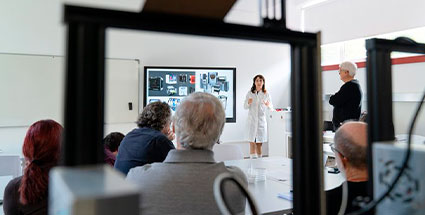Bachelor’s Degree in Biomedical Engineering
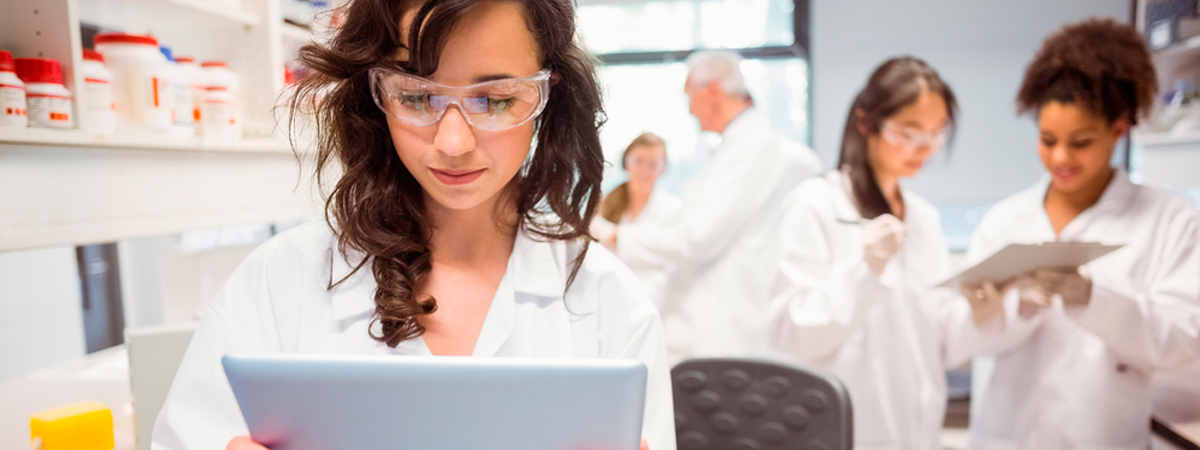
Real simulation environments and state-of-the-art equipment
Biomedical engineering provides an opportunity for engineers and technologists to use their skills to address some of the biggest challenges facing human life, improving quality of life and curing pathologies. The Biomedical Engineering sector ranges from gene therapies to scanners for hospitals, through medical image analysis, among others.
There is a great demand to train professionals who can find a solution to these global health challenges, which is why the sector has grown exponentially in the last two decades, and there is a great demand for degrees related to the development of these skills.
The World Health Organization (“Human resources for medical devices: The role of biomedical engineers”. 2017), states that more biomedical engineering professionals are needed to design, test, regulate, maintain and manage medical devices and provide training on their safe use in healthcare systems around the world.
This program is taught in collaboration with various companies, institutions and medical centers, such as the Genetics Service of the Ramón y Cajal Hospital, and the Advanced Planning and 3D Manufacturing Unit (UPAM3D) of the Gregorio Marañón University Hospital. Some members of these services will give seminars, classes and direct student's final research projects, bringing clinical translation closer and allowing students to develop professional competences.
The Bachelor's Degree in Biomedical Engineering from Nebrija University came to be due to the need to create professionals who are capable of providing solutions focused on improving people's quality of life, combining engineering, biology and medicine.
20% of tuition allocated to practical work
Curriculum
All our degrees and curricula have been prepared in accordance with the new guidelines set by current legislation, having already been verified by the National Agency for Quality Assessment.
The student must complete 240 credits
First year 62 ECTS
First Semester 30 ECTS- 4 ECTS | Introduction to Bioengineering
- 6 ECTS | Physics
- 6 ECTS | Cellular and molecular biology
- 6 ECTS | Calculus
- 4 ECTS | Programming
- 4 ECTS | Linear algebra
Second Semester 32 ECTS- 4 ECTS | Probability and biostatistics
- 6 ECTS | Chemistry
- 6 ECTS | Differential equations
- 4 ECTS | Electronic technology
- 6 ECTS | Biomaterials
- 6 ECTS | Fundamentals of anatomy and physiology
Second year 62 ECTS
First Semester 32 ECTS- 6 ECTS | Computational techniques in biology
- 6 ECTS | Biochemistry
- 6 ECTS | Fluids
- 4 ECTS | Scientific communication
- 4 ECTS | New technologies in medicine
- 6 ECTS | Fundamentals of experimental design
Second Semester 30 ECTS- 6 ECTS | Numerical methods
- 4 ECTS | Systems biology
- 4 ECTS | Financial management of projects
- 4 ECTS | Data science in medicine
- 6 ECTS | Instrumentation and biosensors
- 6 ECTS | Genomic technologies
Third year 60 ECTS
First Semester 30 ECTS- 4 ECTS | Creation and management of technological companies
- 6 ECTS | Computational biology
- 4 ECTS | Biomedical prototype design
- 6 ECTS | Experimental methods in biology
- 6 ECTS | Medical imaging systems and microscopy
- 4 ECTS | Simulation and modeling of systems
Second Semester 30 ECTS- 6 ECTS | Tissue Engineering
- 6 ECTS | Medical devices and implants
- 6 ECTS | Design challenge
- 3 electives to choose from:
4 ECTS | Advanced experimental biology
4 ECTS | Synthetic and in silico biology
4 ECTS | Advanced biomaterials
4 ECTS | Medical image segmentation
4 ECTS | Public Health and Epidemiology
Fourth year 56 ECTS
First Semester 14 ECTS- 6 ECTS | Bioethics and biomedical regulation
- 2 Electives to choose from:
4 ECTS | Complex biogrids
4 ECTS | Bioinformatics and Data Science in Biomedicine
4 ECTS | Biomanufacturing and microfluidics
Second Semester 12 ECTS- 12 ECTS | Final research project
Yearly 30 ECTS- 30 ECTS | Professional internship
Information on the types of Subjects
Professors
| Profesores Professors | Porcentaje de Doctores Percentage of PhD holders |
| 15 | 80% |
 Nieves Cubo Mateo
Directora del Grado en Ingeniería Biomédica
Nieves Cubo Mateo
Directora del Grado en Ingeniería BiomédicaProfesora de Introducción a la Bioingeniería
Profesora de Programación PI of the Nebrija ARIES research group (Artificial Intelligence and Emerging Systems)
Professor of Introduction to Bioengineering
Professor of Programming
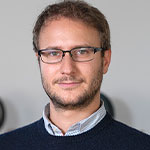 Alex Bernadí Forteza
Profesor de Programación
Professor of Programming
Alex Bernadí Forteza
Profesor de Programación
Professor of Programming
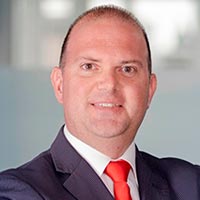 Juan Casado Vela
Profesor de Gestión económica de proyectos
Professor of Economic project management
Juan Casado Vela
Profesor de Gestión económica de proyectos
Professor of Economic project management
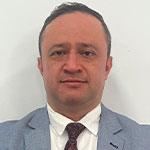 Ernesto Correa Velandia
Profesor de Ecuaciones diferenciales
Professor of Differential Equations
Ernesto Correa Velandia
Profesor de Ecuaciones diferenciales
Professor of Differential Equations
 Carlos Augusto Di Prisco de Venanzi
Profesor de Cálculo
Professor of Calculus
Carlos Augusto Di Prisco de Venanzi
Profesor de Cálculo
Professor of Calculus
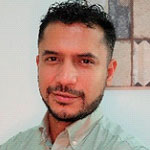 Redlich Javier García Rojas
Profesor de Física
Professor of Physics
Redlich Javier García Rojas
Profesor de Física
Professor of Physics
 Ana Handler
Profesora de Química
Professor of Chemistry
Ana Handler
Profesora de Química
Professor of Chemistry
 Ana María Jimenez García
Profesora de Diseño Experimental
Professor of Experimental Design
Ana María Jimenez García
Profesora de Diseño Experimental
Professor of Experimental Design
 Brígida Molina Carabaño
Profesora de Métodos Numéricos
Professor of Numerical Methods
Brígida Molina Carabaño
Profesora de Métodos Numéricos
Professor of Numerical Methods
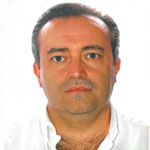 Luis Miguel Pintado Mateos
Profesor de Biología Celular y Molecular
Professor of Cellular and Molecular Biology
Luis Miguel Pintado Mateos
Profesor de Biología Celular y Molecular
Professor of Cellular and Molecular Biology
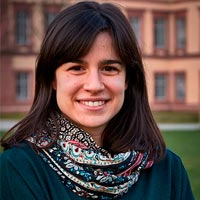 Elena Remacha Motta
Profesora de Fluidos
Professor of Fluids
Elena Remacha Motta
Profesora de Fluidos
Professor of Fluids
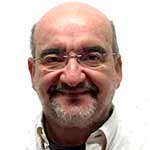 Rafael Sánchez Lamoneda
Profesor de Álgebra lineal
Professor of Linear Algebra
Rafael Sánchez Lamoneda
Profesor de Álgebra lineal
Professor of Linear Algebra
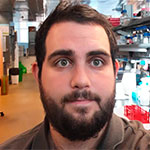 Álvaro Serrano Navarro
Profesor de Probabilidad y bioestadística
Professor of Probability and Biostatistics
Álvaro Serrano Navarro
Profesor de Probabilidad y bioestadística
Professor of Probability and Biostatistics
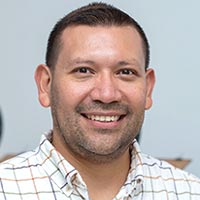 Juan José Uriarte Díaz
Profesor del área de Electrónica y biomateriales
Professor of Electronics and biomaterials area
Juan José Uriarte Díaz
Profesor del área de Electrónica y biomateriales
Professor of Electronics and biomaterials area
More Academic Information
Official Degree:Bachelor's Degree in Biomedical Engineering
Center responsible:School of Medicine and Health Sciences
Branch of knowledge: Engineering and Architecture
Available places: 45
Type of Education: Classromm attendance
Academic year in which it was implemented: 2023 - 2024
Languages: Spanish / English
University Services: [+info]
- C1. Have knowledge in a subject area that builds on the foundation of general secondary education, and is usually at a level that, while supported by advanced textbooks, also includes some aspects that involve knowledge from the cutting edge of their field of study.
- C2. Apply the knowledge acquired to their work or vocation in a professional way, and have the competences that are usually demonstrated through the development and defense of arguments and problem solving within their area of study.
- C3. Gather and interpret relevant data (usually within their area of study) to make judgments that include reflection on relevant issues of a social, scientific and ethical nature.
- C4. Transmit information, ideas, problems and solutions to both specialized and non-specialized audiences.
- C5. Develop the necessary learning skills to undertake further studies with a high degree of autonomy.
- C6. Learn new methods and technologies, with great versatility to adapt to new situations.
- C7. Acquire the necessary knowledge for their professional work, having the necessary tools for it.
- C8. Implement algorithms in modern programming languages. Special applied to Python.
- C9. Carry out conceptual designs of electromechanical devices that allow solving problems in biology and medicine.
- C10. Solve problems applied to biology, physics and chemistry, using numerical algorithms and computational techniques.
- C11. Analyze complex and multidisciplinary case studies from the global point of view of Biomedical Engineering.
- C12. Apply advanced technologies in the field of biomedicine, knowing the problems associated with their development, the current state and future trends.
- C13. Manage biological data, using bioinformatics techniques for analysis.
- C14. Communicate, both orally and in writing, at a professional level. In addition, it is intended that the student appreciate the importance that communication skills have in the performance of any professional activity, especially in research or in the presentation of projects in a company.
- C15. Carry out searches for technical and scientific information in specific databases (Web of Science, etc.). Use reference and bibliography management systems (Mendeley, Zotero, etc.)
- C16. Work applying concepts of Business Ethics and Bioethics.
- C17. Carry out business entrepreneurship activities, knowing the types of technology companies and their foundations.
- C18. Acquire the professional skills necessary to enter the working world of Biomedical Engineering as a qualified professional, with the techniques available for solving problems in this area.
- C19. Manage, exploit and protect intellectual property, through the use of patents and generation of technological companies.
- C20. Carry out an original and individual final research project, as a transversal subject which will be carried out in association with different subjects. Ability to defend it before a university tribunal, consisting of a project in the field of specific technologies of biomedical engineering of a professional nature in which they synthesize and integrate the acquired competences from their studies.
Admission
Admission to the first year of studies
Students who are in any of the following academic situations can apply for admission to the first year of studies:
- Students from Baccalaureate and EVAU (University Access Examination), or COU (university preparation courses) and Selectividad (University Entrance Exam).
- Students from Advanced Vocational Training Programs that will be considered to have preferential access, as established in the R.D. 1892/2008 and 558/2010, those corresponding to the following professional groups or families: "Health" and "Sociocultural and Community Services". In addition, they may benefit from recognition of credits, where appropriate, according to the criteria indicated in point 4.4.
- Students who have completed their secondary education studies abroad and have passed the Selectividad para Extranjeros (for foreign students who have not signed the Bologna Treaty).
- Students who have completed their secondary education studies abroad and have access to the University of their country (for countries signatories to the Bologna Treaty).
- Any other contemplated provisions in Royal Decree 558/2010, of May 7.
Students who have started university studies at another Spanish or foreign university and, having not completed them, want to continue them at Nebrija University, or want to start other studies at this University, may apply for admission to years other than the first year.
In order to prepare this type of admission, we assume what Article 14 of RD 1393/2007, of October 29, which specifies admission to official Bachelor's Degree studies:
- 1. Access to official Bachelor's degree education will require having a baccalaureate degree or equivalent and passing the test referred to in Article 42 of Organic Law 6/2001, on Universities, modified by Law 4. /2007, of April 12, notwithstanding the other admission mechanisms provided for by current regulations.
- 2. Universities will have accessible information systems and reception and orientation procedures for new students to facilitate their incorporation into the corresponding university studies.
In addition, in any case, the provisions of Royal Decree 558/2010 of May 7 will be followed.
These systems and procedures must include, in the case of students with specific educational needs derived from disability, the appropriate support and counseling services, which will assess the need for possible curricular adaptations.
The admission process, in bachelor's degree programs, is divided into several phases, as detailed below:
1. Pre-registration
Students who wish to begin their university studies at Nebrija University must submit the admission application form along with the required documentation.
The submission of the application for admission together with the form for choosing the date for taking the admission test is done in person during a visit to the University, or is sent by postal mail to the University.
They can also start the admission procedure by filling out the online admission form. The Academic Information Department confirms receipt of the printed or online application for candidates and invites them to take the chosen admission test.
On the day of the admission test, candidates must submit, if they have not done so in advance, the following documentation:
- Photocopy of the academic record.
- Photocopy of ID or passport.
- Two passport-size photographs.
- Introduction letter from a professor/tutor from the center of origin or person with whom they have had academic or professional contact.
2. Admission Test
- Academic Record [60%]
The grades obtained by the candidate in their previous studies will be assessed. - Structured Personal Interview [20%]
The candidate's suitability will be evaluated based on their experience and skills to successfully follow the intended studies. Their motivation and attitudes will also be assessed, along with other personal aspects that contribute to their adequate adjustment to the chosen studies. The interview may be conducted in the language in which the studies are taught. - Specific Test [20%]
A specific test will be conducted to assess the candidate's suitability, focusing on their knowledge and skills according to the entry profile of the degree.
Deadlines for pre-registration: February to July.
Enrollment period: Enrollment will take place annually from July 1 to September 30 for degrees that begin the academic year in September. Exceptionally, an extraordinary period will be opened for students who want to start their studies in the second semester. Enrollment must be done before the partial exams of the second semester.
Employability
Career Opportunities
Students easily find work in their first year as graduates, in research institutions or in companies and institutions in the sector. In addition, due to the strong technical nature of this degree and the skills developed, graduates could also work at the forefront of other areas of engineering, such as computer science, automation, etc.
The subject matter addressed by this bachelor's degree is aligned with the national Frameworks (such as the EECTI), European Frameworks (such as the Horizon Europe Strategic Plan), and the United Nations 2030 Agenda for Sustainable Development. The Strategic Lines and Priority Research to which they are related are Health, active ageing, the new digital Industry, and advanced materials.
The Bachelor's Degree in Biomedical Engineering has collaboration agreements with some of the best companies and institutions in the sector, where students can complete their professional internships and thus obtain a highly demanding first work experience.
Some of these companies and institutions are:
Employability recognized in the Rankings
The commitment of Nebrija University to the academic requirement, training in leading companies and institutions, innovation in multidisciplinary programs and international projection, places the University in the top positions of the most important rankings.
The International Ranking QS Stars awards Nebrija University the maximum score in the quality and satisfaction of students in teaching, employability of the graduates and the internationalization of the institution.
The national rankings also recognize Nebrija University as the first Spanish university in teaching and second in employability, highlighting its performance in research, knowledge transfer and internationalization.
The Bologna Declaration formalized the principles on which the European Higher Education Area should be based: quality, mobility, diversity, competitiveness and employment growth.
From this, Nebrija stands as an academic model of reference, educating students with excellent individual behavior, interaction with their environment and motivated by and for constant and continuous training. The Nebrija Institute of Professional Skills works every day to achieve the differentiation of our students through the development of attitudes and skills.
The main objective is for students to achieve the best of themselves through the development and empowerment of their personal skills and resources through personal self-knowledge.
In addition, some of the professional skills that are worked on within the three seminars are those related to interpersonal skills and active communication skills and negotiation, indispensable for our students to know how to transmit ideas, to argue them, to provide information and opinions in an adequate, clear and convincing way.
Within what will be their work performance, other aspects such as teamwork, conflict resolution and project management ability will be worked on.
In the third block, skills worked on are those aimed at increasing the student's employability. They will work with tools and techniques for job searching, and perform tasks that achieve in the student a greater use of their personal skills.
For all this we have currently active experts in selection of people, professionals dedicated to personal and professional training and professionals dedicated to the world of communication and the arts.
In this way, and in a complementary way to his/her specific training, we help the student create a differentiating pattern in the social and business environment in which he/she will be immersed when he/she finishes his/her studies.
International
Nebrija University has an International Mobility Office (IMO), which allows students to enjoy the experience of a mobility period in a country and environment other than their own, with the corresponding academic recognition. It is a fundamental part of the university's internationalization. We offer and manage the mobility of our Bachelor's degree students, as well as receive international students every Semester. To do this, we structure ourselves into 3 areas: Outgoing, Incoming and Erasmus.
In addition, to facilitate the international mobility of students, subjects that are a regular part of the curricula of foreign universities have been concentrated, within the Bologna plan. In the same way, the fourth year is considered as a possible year for students to carry out national or international internships (30 credits), while their final research project is supervised by the tutor using specific videoconference tools such as Blackboard Collaborate.
Specifically, the following existing agreements apply to students pursuing the Bachelor's in Biomedical Engineering:
In all of them, there are general agreements for the exchange of one student or for two semesters. Due to the great flexibility, more places can be established depending on student demand. Once the Bachelor's Degree is established, efforts will be made to internationalize it by signing new agreements with universities to promote cultural and academic exchanges.
Additionally, there are over 80 bilateral agreements with universities worldwide, applicable to any degree at the university, and more than 60 Erasmus agreements to facilitate student mobility.
At the same time, we manage scholarships from public and private organizations for both students and staff (PDI/PAS). [+info]
Note: The information published here is for guidance only and may be subject to modification.
University Life in Biomedical Engineering
Visit all the Activities of the School of Medicine and Health Sciences
Nieves Cubo holds a workshop on printing human tissues
Nieves Cubo, leader of the Artificial Intelligence and Emerging Systems Research Group (ARIES) at Nebrija University, conducted a highly successful workshop on bioprinting during Madrid Science Week.
See article